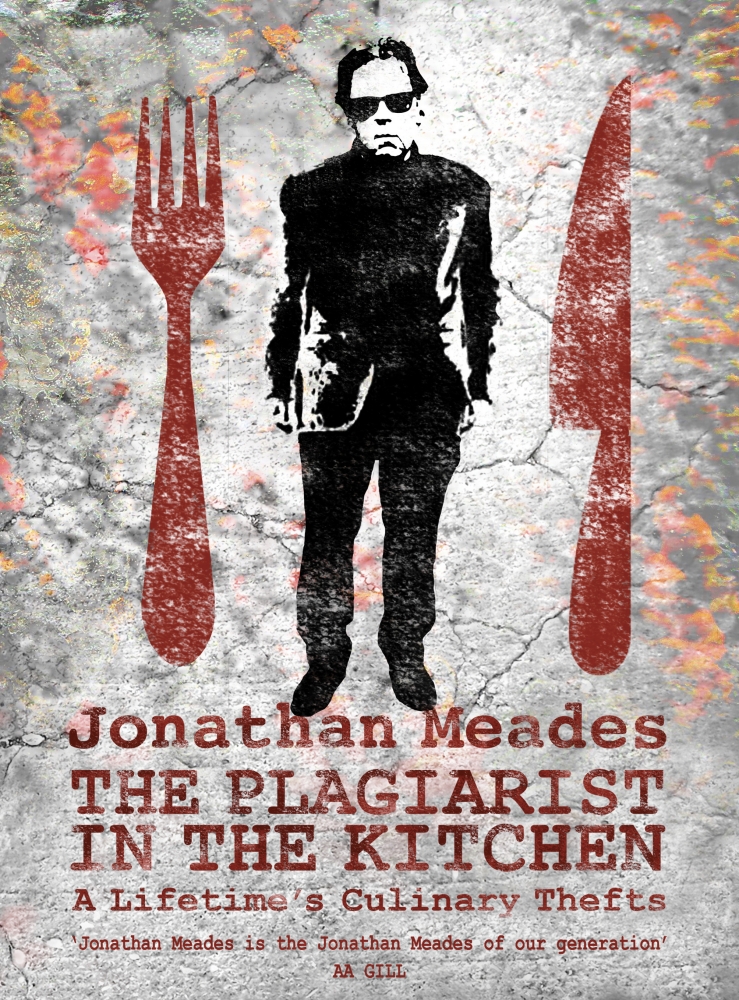Do you know absolutely nothing about tax? Don’t worry, most ‘experts’ are the same, says Dabbler editor Brit…
Is The Budget over yet? Specifically, the entirely misleading press coverage of George Osborne’s announcements last Wednesday? Now I know a bit about tax, and by that I mean ‘a bit’ and no more. I certainly don’t claim to be an authority on UK tax law, which is so unfathomably complex that the Coalition felt the need to establish a whole Office dedicated to its Simplification. But having written professionally (and anonymously) about the last fourteen Budgets I have acquired, largely by accident, a grasp of the most basic basics – just enough, in fact, to be annually alarmed by the dreadful, ignorant, conflating, confused treatment of taxation in the mainstream media, and by the number of commentators who do claim the authority to pronounce loftily on matters fiscal and budgetary despite lacking even my meagre understanding of them.
Consider Owen Jones, a genial, baby-faced Trotskyite, who appeared on This Week last Thursday with a little film in which he claimed, to my unfolding astonishment, that the cut in the top rate of income tax from 50% to 45% was like ‘‘writing a cheque for £40,000″ to 23 members of the Cabinet, enabling them to purchase, should they have sufficient thirst, 288 bottles of Cristal champagne.
Jones had come to this bizarre conclusion – delivered with absolute ‘more-in-sorrow-than-anger’ certainty – by confusing the idea that 23 members of the Cabinet are ‘millionaires’, ie. worth over £1m pounds, with the idea that each must have an income of one million pounds every year.
Thankfully, Andrew Neil in the studio did point out the gaffe (and to his credit, Jones did later own up, via Twitter, to an ‘embarrassing cock-up’) but I’d like to know why the BBC’s producers allowed him to make it, complete with a limo and champagne flutes as televisual props? It was humiliating for Jones and also misleading for any viewers who might have turned off before Neil corrected it. So either the Beeb knew Jones was talking twaddle and allowed him to do so anyway for the purposes of starting a row in the studio, or, more likely I suspect, the producers of one of the BBC’s major in-depth politics programmes don’t have a sufficiently solid grasp of the fundamental principles of taxation that a screaming error like this does in fact scream at them.
Owen Jones has a simple political view: he thinks it’s immoral that some people are richer than others. It’s not a view I share but it is a recognisable stance. The problem is that Jones feels competent to make public comment on the details of the Budget in the light of this view.
There’s a lot of this sort of presumptuousness about at the moment, in no small part driven by the UK Uncut movement, which tries to aim the radical protest politics of the Occupy ethos at the tax arrangements of big businesses and wealthy individuals. Occasionally this is fully justified, but most of the stories I read are absurd oversimplifications.
Take this story on DigitalSpy entitled ‘One Direction become company directors to avoid tax’, in which it is insinuated that because the members of the boy band will receive their earnings through a company rather than being paid directly, they can dodge huge amounts of tax:
Private companies in the UK pay around 28% tax on profits, compared to 50% income tax for individuals earning over £150,000 a year. Expenses such as travel, clothing and make-up also become tax-deductible.
One Direction could save up to £220,000 for every £1m they earn.
Now were I the financial adviser to One Direction they’d be in big trouble, but that aside, I would certainly advise them to use a company because it is a much more sensible way for them to structure their earnings than trying to operate as individuals (they will presumably have multiple income streams – from record sales, shows, merchandise, DVDs etc – in numerous different countries, with jointly-incurred expenses required to generate this income, and will probably equally share the net results of all that. Trying to do that as individuals would be a nightmare comparable to divvying up the restaurant bill with a faculty of students). But the claim that they can make a tax saving of £220,000 per £1m income is ludicrous, first because they would only pay 50% income tax on earnings over the £150,000 top rate threshold; but more importantly second, because it assumes they won’t actually extract any income from the company for their own use. In fact, as soon as they attempt to do that so that they can spend their moolah on skateboards, Top Trumps cards, hair products and so on, they would have to pay tax on dividend income, the rates of which are not much less eye-watering than income tax ones.
I appreciate you shouldn’t expect DigitalSpy to apply much in the way of standards to its ‘reporting’, but my conclusion following the Budget coverage is that the rest of the mainstream media doesn’t worry too much about facts either. The ‘granny tax’ debacle is a perfect illustration of how a snappy label can frame the debate. Probably some wiseguy on Twitter coined ‘granny tax’ to describe a freeze in a proposed future allowance increase, and suddenly the Budget narrative on the BBC, Channel 4 and virtually all the newspapers is: “Osborne funds tax cut for millionaires by hitting pensioners” – a ridiculous way to summarise a Budget the net changes of which will make most pensioners slightly better off than if they hadn’t been made, but one nonetheless propagated even by Tory-leaning papers like The Telegraph and the Mail.
You can find informed commentary on tax legislation but you have to ignore the front pages and the TV news and read the comment section of the better broadsheets, the weeklies or the FT. But I suppose that’s just yet another complaint about headline-mongering hackery. Plus ça change says you drily and I wouldn’t disagree.













What most are too scared to say about the ‘granny tax’ is that it’s going to fall (really quite lightly) on wealthier pensioners who, once the great taxman in the sky imposes his 100% marginal rate, will have done much better out of the welfare state than their grandchildren (not to mention the property market). But you can’t say anything too blunt on these lines as their plight will be conflated with the genuinely poor elderly. They also happen to be assiduous voters.
I’m most concerned about 20-somethings who have graduate debts, no family money to help them buy a property, soaring rental costs and a jobs market where old-style graduate jobs are hugely more scarce than graduates. I wonder whether the politics of this situation could get quite heated at some point.
The only thing that solves just about everything is economic growth.
…and alcohol
…or possibly drugs, if legalised and taxed.
Owen Jones is the spotty little chap who is wheeled out to defend chavs on every BBC programme isn’t he.
This year I shall be avoiding tax by buying cold pasties and reheating them myself.
There’s been a budget? heck, I really must spend more time back at the ranch. That the BBC aired the misinformation comes as no surprise, the broadcasters news and current affairs wallahs exist in a bubble, the one twelve inches inside it’s anus. Not only do they not understand taxation Brit, they know nothing of business in general, tut-tutting away at the profits of large companies, talking of the amount of money, not the percentage of turnover, exhibiting a miserable lack of even the most basic knowledge. We can gauge the content to follow of any BBC news programme by the degree of the shit-face worn by the skinny burd and her cohorts.
They are a bunch of Turings however, compared with HM Govt who, until comparatively recently computed their monthly import / export figures, by weighing the documentation involved.
Tax the wrinklies ’till they bleed, that’s what I say.
You listening, wee Georgie.
He had a point, though. Perhaps it wasn’t such a good idea to drop the top rate of tax for the wealthiest folks and then introduce other measures which increase the cost of living disproportionately for those at the lower end of the scale. And not least when this is presented by Don Politicos who probably equate take-away food with visiting a soup kitchen and who have made such a play of us all being in it together.
I’m with Gaw, though. We’ve made a right hash of it. If we don’t want the young to leave en masse or start the burning, an awful lot more is needed than tinkering with a few rates of tax which no one understands anyway. Maybe those headlines and lead stories on TV are classic cases of The Yard’s thesis: simple solutions don’t work in a complex world.
I’m no expert either but surely you’re in error, Brit. The tax rates are quoted there, 50% (on wages) vs. 28% (on share dividend) for income above 150k. To say nothing of the saving in NICs. I’m not aware of any further tax liable on directors.
The tax system will always be complicated as it strives for greater “fairness”; kind of counter-intuitive, really.
Ian, I think you’re making the same mistake as the DigitalSpy people: the 28%rate alluded to is corporation tax, not income tax on dividend payments. For higher-rate tax payers the latter is 42.5%. So I reckon the boys in the band might save themselves something over £60,000 p.a. each by this arrangement (but as you say this doesn’t include anything for NICs).
You’re right! – I was forgetting, they’re additional high earners. It certainly doesn’t pay to work harder than you need to in the UK.
I don’t mean to harp on and be a tax bore, but that isn’t the point at all. We don’t know what they earn. All we know for certain is that the corporation tax rate is not the correct comparison to the income tax rate they might otherwise pay, as explained in my comment below.
(That’s £60K on hypothetical earnings of £1M.)
Quite so, JL. Ian is repeating (Why, Ian, why? Is my demolition not sufficiently devastating?) the same empty comparison between the top rate of income tax and the main rate of corporation tax (then 28%, now 26%) that DigitalSpy make in an attempt to imply that One Direction can save a whopping amount of tax on their earnings.
Corporation tax applies to the taxable profits of a company. Using that as a comparison with income tax rates assumes, as I said above, that the boys won’t pay themselves anything but will leave all their earnings inside the company. As soon as they try to extract value, then whatever method they use (dividend, salary or bonus) they will pay more tax one way or other.
Tax on dividend income rates are here – highest rate is 42.5%. So they could doubtless save something compared to not using a company, but the 22% figure cannot be achieved in reality however clever their accountant might be, so the comparison is meaningless.
But anyway, aren’t they a Simon Cowell product? I which case I rather doubt he will be permitting them £1m a year each so DigitalSpy’s figure is entirely spurious every which way.
I feel a bit sorry for the Owen Joneses of the media world. Imagine if all the bollocks you came out with in your youth was made public, and everlastingly so.
..there’s still time for him to ‘do a Christopher Hitchens’
Doubt it though
Indeed, that’s why in the post I questioned why the BBC allowed him to talk such bollocks without pointing out the gaffe to him. It was either ignorance or deliberate cruelty.
It’s quite possible to remain as young and naive as that until very old, if one surrounds oneself with similarly minded souls seeking simple solutions.
I assume he studied English, and did a lot of Marxoid critical theory, instead of economics, or heavens above, something useful.
I enjoyed this bit of speculation in the Guardian’s VAT-on-hot-pies report:
But surely if you stocked up on them they’d go cold and you’d just as well buy a cold one to begin with? But then this is obviously complex stuff.
Note how, for some reason, these particular pasty-related tax avoiders and loophole-exploiters are goodies, whereas others are baddies.
Good point. And whilst at the business end of things, the chains such as Greggs and Sainsburys will have to charge more, the local chippies will now look better value. I look forward to Occupy Greggs.
Spare a thought for the poor Germans, their IRS can, without warning or application to a court, raid ones bank account, removing what they feel is owed.
Hence the booming banks in Vianden and Echternach, just across the Our river, the dosh remains ours.